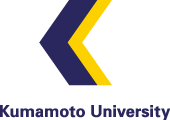Three Commitments
Offering Practicum and Research Courses in Each Program
Each graduate school program consists of “practicum courses,” designed to train highly specialized field professionals, and “research courses,” for those interested in doing research in the subject. Providing both types of courses not only allows for a more systematic course of study, it also creates an educational environment where students fresh out of undergraduate programs who have developed fundamental academic skills and working students who have gained real world experience can come together and stimulate each other to reach new academic heights.
Graduate Program Structure
Master's Program
| Major | Course |
|---|---|
| Division of Law, Policy and Conflict Resolution Studies | Law, Policy and Conflict Resolution Research Course |
| Law and Public Policy Practice Course | |
| Conflict Resolution Practice Course | |
| Division of Modern Social Human Studies | East-Asian Business Communication Specialist Course |
| Advanced Ethics Research Course | |
| Field-Research Research Course | |
| Cognitive Philosophy and Psychology Research Course | |
| Division of Cultural Science Studies | Cultural-Administration and Curator Specialist Course |
| History Research Course, | |
| High School Japanese-language Teaching Specialist Course | |
| Japanese and East-Asian Culture Research Course | |
| English-language Education Specialist Course | |
| Euro-American Culture Research Course | |
| Contemporary Cultural Resources Course |
Doctoral Program
| Major | Domain |
|---|---|
| Division of Human and Social Science Studies | Public Policy Studies |
| Advanced Ethics Studies | |
| Conflict Resolution Studies | |
| Legal Studies | |
| Field-Research Studies | |
| Cognitive Philosophy and Psychology Studies | |
| Division of Cultural Science Studies | English-language Pedagogy Studies |
| Japanese and East-Asian Culture Studies | |
| History Studies | |
| Euro-American Culture Studies |
Master's Program・Doctoral Program
| Division of Instructional System Studies |
|---|
Flexible Arrangements for Working Students
This graduate school, in particular its practicum courses, is focused on accommodating working students. As such, we consider the needs of such students who have various restrictions on their ability to study. We make every effort to provide flexible options so that working students can continue their current jobs while enrolling, taking courses, engaging in guided research, and otherwise continuing their education. These include: classes scheduled at night and on Saturdays, intensive courses, e-learning, and online courses. We also schedule separate entrance examinations so that prospective working students can have every opportunity to join our school.
Deep and Diverse Curricula
We prioritize a systematic graduate education over a formalistic one. As such, each course in each program of study has a number of mandatory and core classes that every candidate must take. In addition, we have devised courses that can be applicable to various disciplines, such as practicums that encourage the development of specialized skills based on academic techniques rather than rote learning, and research courses that emphasize theoretical studies which build on this practical knowledge. We furthermore invite educators from other organizations and abroad to host a variety of seminar and symposium events.

